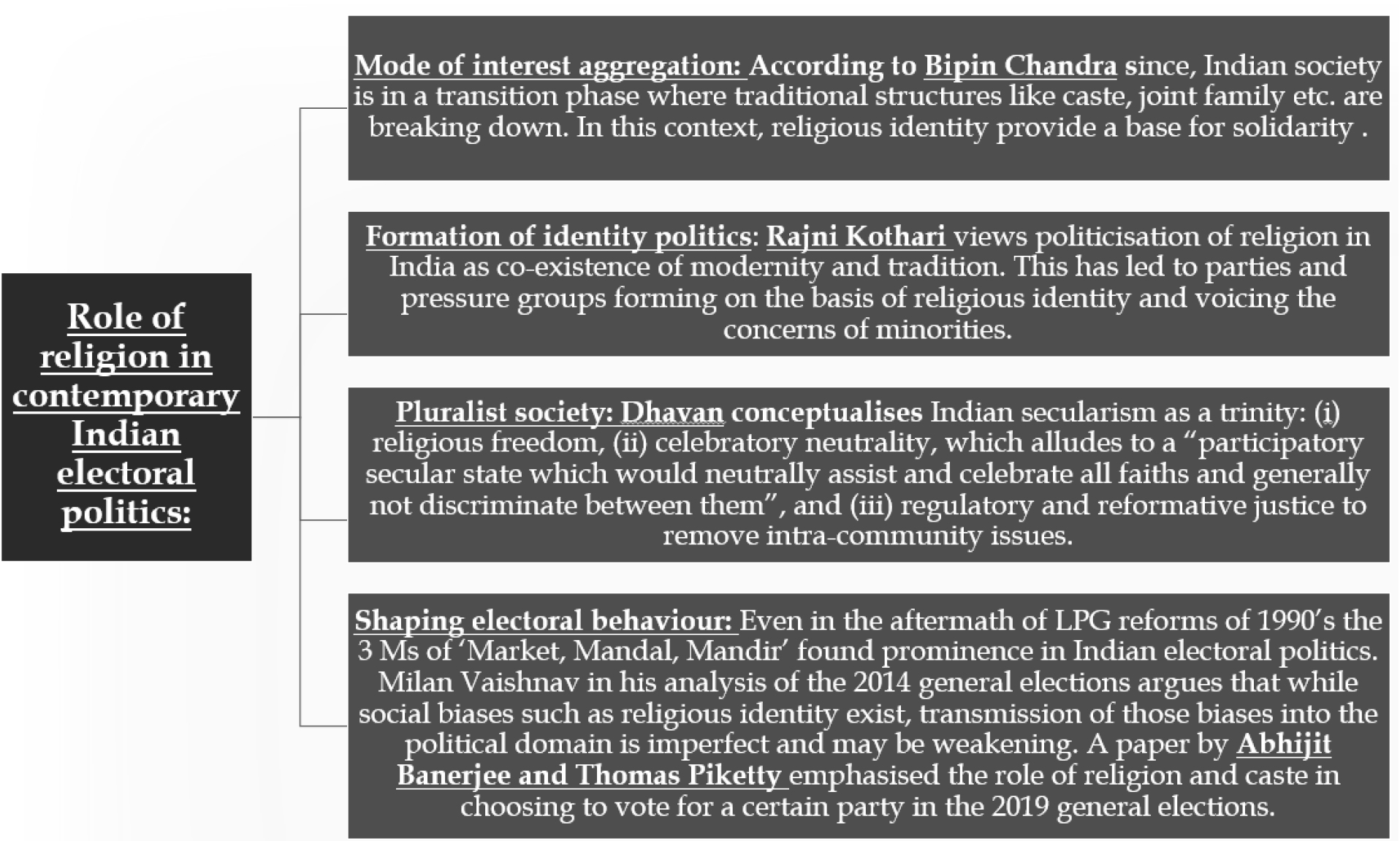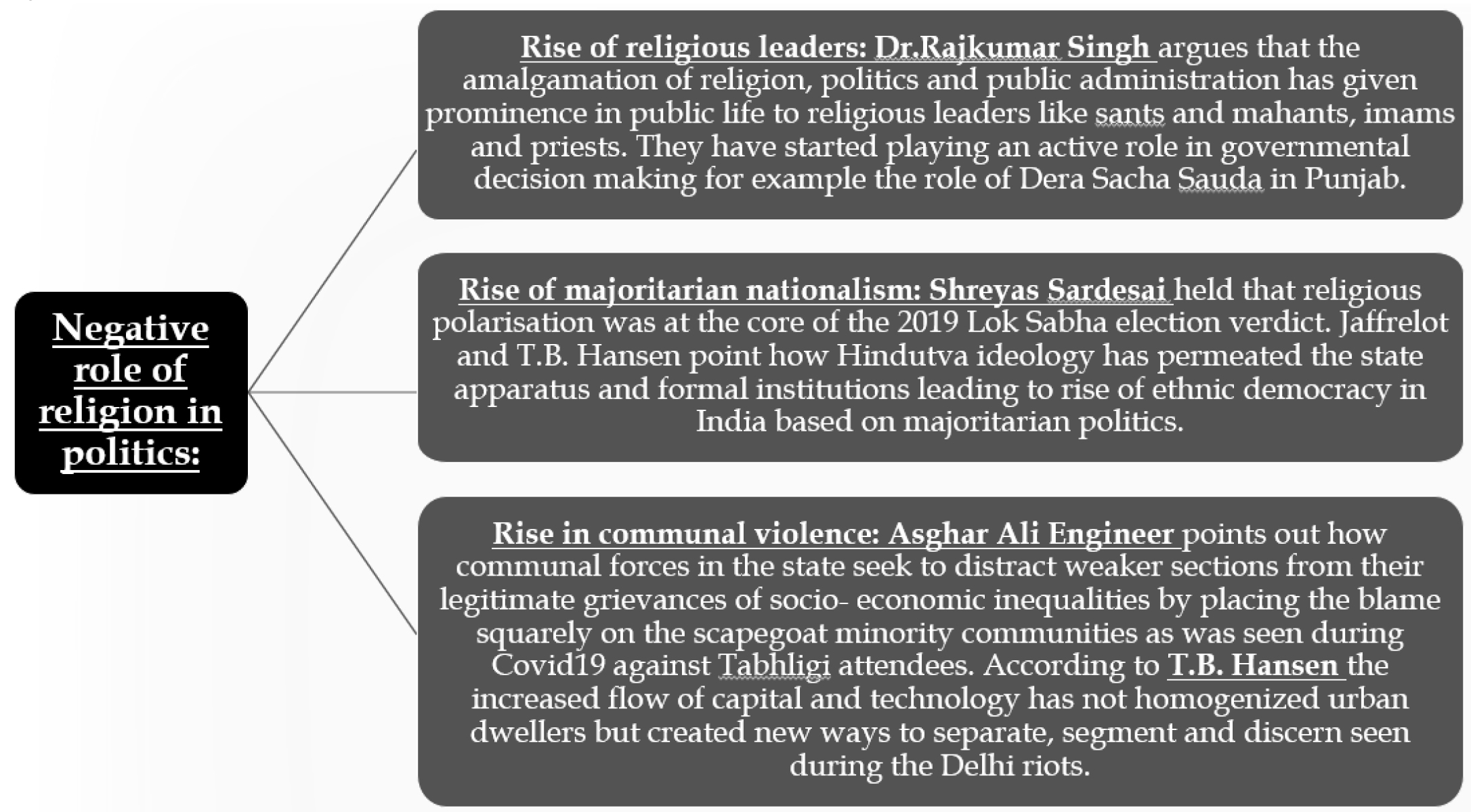- Home
- Prelims
- Mains
- Current Affairs
- Study Materials
- Test Series
 EDITORIALS & ARTICLES
EDITORIALS & ARTICLES
Examine the role of religion in Indian Electoral Politics in the contemporary times. (UPSC CSE Mains 2020 - Political Science and International Relations, Paper 1)
Kirby and Thakur highlight how the ancient Hindu concept integrate religion, duty, responsibility and law. Ideas of Rajdharma provided a religious duty and grounding to the State. In the closing decades of the 19th century the "liberal-plural" theory was advanced by the moderate nationalists. This approach believed that religion should not be mixed with politics. This theory was replaced by the "orthodox plural" theory of secular nationalism. This was forwarded by Gandhi. He picked up religion as basis to political action and national identity.

- According Ramchandra Guha, after the neo-liberal consensus over economic policy, political cleavage acquires important role in India’s contemporary politics. On the other hand, Yogendra Yadav argues for the advent of identity plus politics.
- Religion can play both an empowering and disempowering role in politics. There is need for reforms to reduce its negative role:
- While Law Commission argues against UCC, ‘essential religious practices’ doctrine needs to be standardized to deal with issues of intra-religious injustices and curtail politics of appeasement.
- Bodies like Election Commission of India need to be given teeth to deal with misuse of religion in hate-mongering politics. The Abhiram judgment held that appealing to the ascriptive identities of any candidate and that of the voters constitutes a ‘corrupt practice’ under Section 123(3) of the Representation of the People Act, 1951, can be a guiding light in this regard.
- Finally, enact a law to deal with communal violence that curtails usage of social media and other tools to spread violence, ensures speedy action, investigation and trial as well as compensation for victims.
- Given the importance of religion in India’s public life (Madan and Nandy), it may be impossible to completely de-hyphenate religion from politics but adequate measures can ensure its misuse.










 Latest News
Latest News General Studies
General Studies